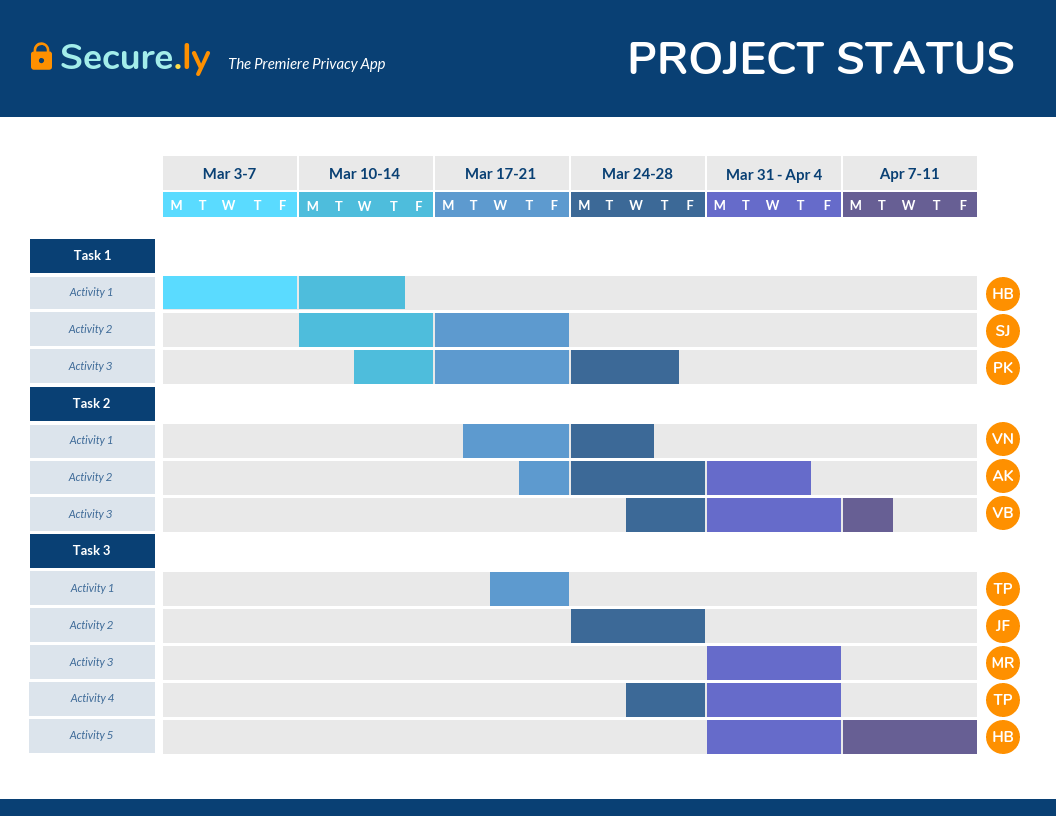
The role of a project manager is varied and challenging. A project manager could be tasked with overseeing everything from internal software to a complete business overhaul. This is a job that is constantly changing and very demanding.
It is clearly a highly essential role in the running of a successful business. Organizations need their project managers to be at top efficiency at all times. The importance of effective project management can’t be understated, and neither can the importance of effective project managers.
But many high level officials may be noticing that these core team members aren’t being as productive as expected, even with the help of the best project management software available to them.
Why would a project manager not be performing at optimum efficiency? We look at five reasons why a project manager isn’t being productive, and what you can do to solve the problem.
1. Not Prioritizing Correctly
A project manager has a large number of tasks to oversee, alongside liaising with several stakeholders. A project manager will likely be dealing with colleagues, tertiary departments, as well as external parties.
Each different group will have their own requests and timelines, all of which have to be supervised by the project manager. Every group of stakeholders will have their own deadlines, and they will be pushing the project manager to send feedback on their section so they can move on to the next task.
This is an understandable part of the job. Only a handful of people, alongside the project manager, will have any idea about the scope of the project. Everyone else will be focusing only on their sections.
But if a project manager prioritizes one set of stakeholders over another, that is when they begin to venture into troubled waters. A project manager who fails to prioritize the project over the people they work with is failing to do their job at their best capacity.
To continue to be productive, the project manager needs to know how to manage their tasks, and how to deal with conflicting deadlines and requests.
Creating a project status report will help to chart the project’s progress. Use Gantt chart templates to determine which tasks need to be completed by whom, and by when. Gantt charts will also indicate which deadlines are approaching, as you can see in the below Gantt chart example.

[Source: Venngage]
The gantt chart will help the project manager, and everyone they are dealing with, stay on track and aim for the final project goal.
2. Lack of Open Communication
The world runs on communication but it continues to be one aspect of project management that consistently falls through. Communication needs to be constant and consistent. Whoever the project manager is working with needs to be contacted about any changes or updates that may affect them.
And the communication needs to work both ways. Project managers need to be open to feedback. Have they set an unreasonable deadline? Or has a particular task become more complicated than had been earlier predicted?
Team members need to feel that they can go to their project managers and share their concerns. If they feel their feedback is unwelcome, the project manager will not be able to produce the best result, and the project itself will suffer in the long run.
On the other hand, being too open to opinions can also be detrimental to a project manager’s productivity. While it is tempting to take on board every bit of feedback one receives, project managers have to decide what is and isn’t relevant to the project.
Otherwise, the project manager becomes nothing but a figurehead, channeling everyone else’s thoughts and bringing nothing to the project.
To be productive and efficient, project managers need to master methods of effective communication. Only then will they be able to make a positive impact on their work and the company.
3. Knowledge Gaps
We have determined that the job of a project manager is vast. They need to have a large repository of knowledge, not only about the project but of the organization they are working in.
A handful of years ago, this was not a necessity. Project managers could have a high-level understanding of the workings of the organization, but now specificity is key. A project manager needs to understand the ins and outs of their company so they have context for the project they are working on.
Having only limited knowledge about the company and its competitors will negatively impact the manager’s efficiency. Similarly, they need to have a fair understanding of the industry as a whole, if they are to understand how the project can proceed and succeed.
Knowing how the company works and what it needs to develop will help the project manager determine their project goals, and effectively tackle any issues that may arise. They need to have a bird’s eye view of the situation so they can direct actions accordingly.
Speaking to higher level managers and educating oneself, even through resources online, will help to fill in the gaps in knowledge and make project managers more productive.
4. Time Mismanagement
Time is of the essence in the management of a project. There are deadlines that need to be reached so that other aspects of the project can proceed. Not managing time correctly is one of the biggest reasons why project managers fail to be productive.
Though it is understandable that a project manager will struggle to handle the time aspect of their role—considering the number of jobs they are in charge of doing—there are ways to manage time better.
Task lists are a great way to determine which tasks need to be completed urgently over others. There are also a number of time management apps, like the RoundPie, that helps managers track the time each aspect of a project takes.
Such tools can be added as extensions to browsers for ease of use and will keep managers on track and productive.
5. Management Style Divide
The project manager’s goal is to complete the project successfully and to do so, they need to ensure that the people they are working with are comfortable. If the people the manager is working with can’t be efficient, the manager’s productivity will be adversely affected.
Managers need to remember that people have various reactions to those in authority—some admire them, others fear them, and another group thinks of managers as a fellow cog in the company wheel.
A crucial aspect of people management is understanding how colleagues and juniors will react to you, and adjusting accordingly. But differing management styles can prove to be a big hurdle.
Some managers believe that an authoritative stance will motivate those around them to work better. Others believe in taking on feedback all the time, without giving their co-workers actionable pointers.
There are other managers who believe in micromanagement—taking on major tasks themselves, or checking up on even the smallest of jobs. These managers can be more of a hindrance than a help, negatively impacting the project as a whole.
Project managers need to work on their management skills if they are to effectively communicate and motivate their teams to finish their tasks on time.
Conclusion
Being a project manager is demanding and continuous productivity is hard to achieve. But there are a few things that a manager can do to ensure that they remain at the top of their game.
It is crucial to keep lines of communication open, but to also know when to step back and allow your team to do their work, without stepping in. Prioritize tasks and fill in your knowledge gaps by educating yourself and asking for help when you need it.
By working as a team but managing your time and the people around you, project managers can be their most productive and efficient selves.
About the author:
Ronita Mohan is a content marketer at Venngage, the online infographic and design platform. Ronita is interested in a variety of topics related to digital marketing, visual content, and online engagement, which she enjoys researching and writing about.
Twitter: @Venngage
What would you like to know and what would be the best way to share this information to you? What is the best tips & tricks, what workaround do you use? We'd really appreciate your insight on these ones to make our integrations better, more productive and much more efficient. Comments, tweets are always welcome.